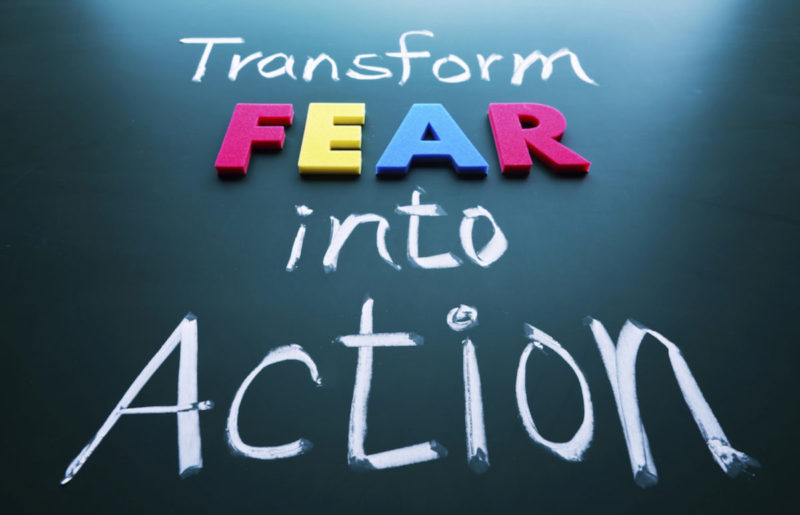
Social Distancing–or–Physical distancing, taking action, and revisiting with social connectedness. Let’s consider a switch.
I’m a Board Certified Licensed Psychologist and Cognitive-Behavioral therapist who specializes in the assessment and treatment of anxiety disorders and Obsessive Compulsive Disorder for children, adolescents and adults. I’m the owner and Clinical Director of one largest anxiety specialty clinics in the state of Georgia. I like to think, however, that I really specialize in the human conditions of suffering and recovering.
We are all in a new phase of livelihood and, for most of us, we feel worse off than we did just a few weeks ago when it comes to our mental health. Why? Whether or not you have a pre-existing mental health difficulty, I am hearing from so many friends, loved ones, patients, and neighbors that the world is feeling more dangerous, unsettling, unpredictable, and sad. There are countless stories in social media of everyday people, small business owners, restauranteurs, along with our nurses, teachers, and first responders, all feeling much more alone, disconnected, lost, depressed, or undeniably worried about illness, finances, or employment. We all seem to be overwhelmed by the uncertainty of when this might end, not knowing if or when we will ever get back to the way our lives were before any of us heard of COVID-19.
We can all debate the merits of “social distancing” and whether or not it was ultimately be the best option for reducing the spread of COVID-19 and the burden this spread will have on our under-resourced healthcare system. This is a discourse for another day and time, but like many health care providers who are scientists first, I will simply defer to the experts on pandemic outbreaks and trust that the Centers for Disease Control and Prevention (CDC) and the World Health Organization (WHO) know better than most of us.
I want to offer a reconsideration for the concept of “social distancing,” something brought to my attention after attending a religious service a few weekends ago. During the sermon, it was stated that the chosen phrase “social distancing” was a poor one and that some religious leaders have encouraged us to reconsider its naming to something more aligned with “physical distancing.” I couldn’t agree MORE. Most of us are social creatures, some more than others, of course, but the thought of reducing our “socialness” in times of required physical separation has been taken way too literally, especially in times of heightened concern for illness for all age demograhics, in times of a struggling economy, in times when elderly now have limited access to loved ones, and in times where many of our typical social outlets (e.g., watching sports on TV or at bars, attending college or school, going to movies and restaurants, watching our kids play sports all weekend, heading out to springtime festivals, or traveling across the country to see Phish play at Lake Tahoe) have been canceled or likely will be. People are describing long hours at a time and even multiple days in a row of social isolation in their homes and not knowing knowing what to do with their alone time. Without me suggesting we compromise national pandemic guidelines, remaining “literally” in your residence is not the what the CDC or WHO suggested, in my professional opinion. Though my reconceptualization of “social distancing” is not radical or new, I’m sure, it saddens me to see so many people feeling like they have no options for engagement, for happiness, or for joy because there is a sense that the good things in life require us to be in person, in large gatherings, at concert venues or malls. This is simply not true and I hope that we as a country quickly wake up. We are only about two to three weeks into this game but there is plenty of time to turn it upside down and take control of the beautiful opportunities for joy and purpose all around us.
I would like to share some basic tips that any Cognitive-Behavioral specialist should offer, suggestions I would make to anyone struggling to be active, feeling down, feeling like life is out of their control, or simply struggling with an overwhelming sense of uncertainty. These recommendations, if followed, can instill hope, give you a heightened sense of joy, intentionality, and control, and remind each of us that just because we can’t go to the office, or the mall, or the movies or your local eatery doesn’t mean you are without options (though my fingers are crossed that Phish keeps their 2020 summer tour).
-
-
-
- Stay connected to nature, by going outside and finding elements in the natural world that you might have taken for granted, like seeing new budding flowers, making a campfire for you and your family to sit around and create new memories, tend to gardens or plants in your own backyard or nature centers, or simply paying attention to the sounds of birds chirping at sunrise. All of these are just outside your front or backdoor or likely within minutes of a drive.
- Get moving. There is so much science behind the positive impact of movement and exercise on your mental health. As humans, we are not designed to sit in recliners or couches all day long and our bodies crave movement, especially new movements that keep your body constantly evolving and growing. So, whether its taking a brisker walk than you normally do, or jogging a short distance that you haven’t done in some time, or trying out the many FREE apps that are available during this phase of social distancing, try them out. Meditation, yoga, stretching, or core strength building does not require any fancy equipment or gym memberships, it just requires your decision to try it, likely on a mobile device, and a preferably a quiet and comfortable place to yourself.
- Social distancing is the buzz word but I strongly recommend a renaming to “physical distancing with social connectedness.” With so many video camera platforms (e.g., zoom, skype, facetime, etc) that are free, there is no reason that you miss out on connecting with old and new friends. Bring together families and host trivia night (that’s what my neighborhood did this weekend with 9 different families all on one screen and it was a blast). Or, go visit with friends in a cul-de-sac or on a driveway or at a park while maintaining the recommended physical distance to reduce the spreading of germs and viruses. Or, teach your children about letter writing and send thank you notes to first responders, police officers, elderly care workers, or nurses, these are the real heroes putting their lives on the line.
- Do something new, innovative, brave, or intellectually stimulating. Learn (or fine tune) how to cook or bake. Learn a language, a musical instrument, or how to make a craft. Fine new ways to do old behaviors, re-organize or declutter parts of your house you just haven’t had the time to commit to, or take up a new hobby that can easily be taught to you through YouTube (OMG, everything you want to learn is on YouTube). When we are beyond this window of time, how great will it be for you to say that you didn’t lose time but rather gained a new skill or hobby that you can take beyond your community. Maybe take your new found talent as an acoustic guitar rookie to a local watering hole and show off the three songs you learned to play this summer.
- Finally, simply spending some time in self-reflection with an intentional focus on gratitude, while reminding yourself that “though every day is not great, there is something great in every day” (I don’t know the true author of this quite but its one I rely on all the time with my family and patients in dark times). It takes a little work, as many of us have minds that seem to drift a bit more towards negative rather than positive content, but with a little bit of effort and intentionality, each of us can choose what we focus on in good and bad times, and it is that choice and focus that sets us up for a good mood or bad mood…which leads to healthy or unhealthy decisions…which leads to productive or unproductive actions (spoken like a true Cognitive-Behavioral Specialist).
-
-
Face your fears. Live with uncertainty. Take control of your life.
Dr. Josh Spitalnick
Licensed Psychologist, Board Certified in Behavioral and Cognitive Therapy
Clinical Director, Anxiety Specialists of Atlanta
Dr. Spitalnick specializes in the assessment and treatment of anxiety disorders and OCD in children, adolescents, and adults

